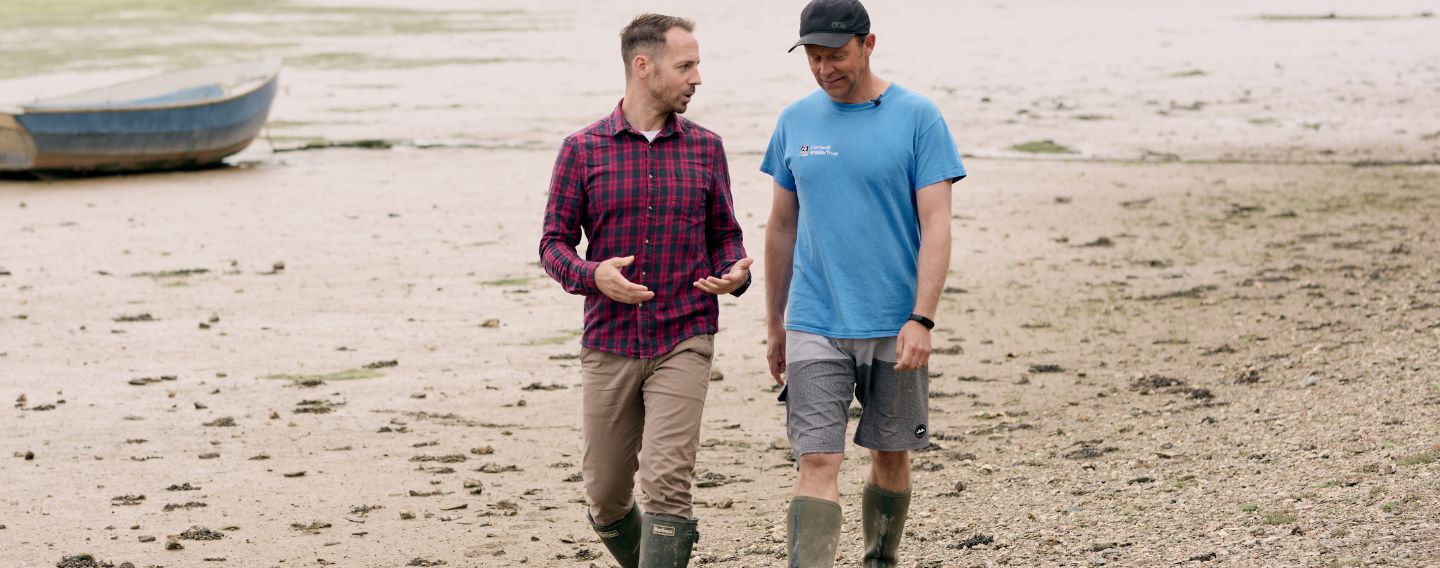What are Seasalt doing in the UK to support the local environment?
We’ve been working with the Cornwall Wildlife Trust to restore climate change-fighting seagrass beds in Cornwall.
Seagrass is a flowering marine plant that has the potential to capture carbon from the environment up to 35 times faster than tropical rainforests. It also provides a habitat for marine life, cleans surrounding seawater, and helps to protect the coast from erosion. However, in the UK, approximately 92% of seagrass was lost in the last century.
The huge decline has been caused by pollution, disease, and coastal development. Additionally, damage from anchoring, moorings, and dredging has impacted the country’s seagrass beds. This alarming decline is why we’ve pledged £150,000 to the project, to help restore these crucial underwater forests.
What are three things we can do as individuals to help care for the environment?
As individuals, there are a few things we can do every day to make a real difference. Where possible, try to walk and cycle; it is a great way to get out and experience your local community and environment.
Eating locally can also have a big impact. Eat what is abundantly produced in your area and moderate your meat consumption – food with fewer miles tends to taste better. Finally, making considered choices to ensure you buy things that will last, knowing how to look after your purchases properly, and learning to repair them when they break can help. All products have an embedded carbon footprint, and extending their life can make a real difference.
Why is sustainability important to Seasalt?
Our coastal home is completely surrounded by nature, which serves as a constant reminder of our responsibility to create thoughtfully designed collections while working towards reducing the impact of our business on the environment. This commitment to sustainability has always been a key part of who we are and, as our brand grows, our responsibility to the environment and people has become even greater.
What steps are Seasalt taking to look after the environment and workers’ rights?
From an environmental perspective, we have set ambitious science-based (carbon reduction) targets for 2030. We are committed to becoming a net-zero business by 2040. We are also working to reduce the waste we send to landfill from our own operations to zero and we’re working with suppliers to set targets to reduce waste and energy usage further down the supply chain.
Workers’ rights have always been important to Seasalt, and inform many of the choices we make for our products. We are one of the first UK pioneers of GOTS (Global Organic Textile Standard) certified cotton. GOTS certifies both the organic status of the cotton, but also ensures workers' rights through its fully certified chain of custody approach to product verification.
We have also committed to fully certifying all our wool to the Responsible Wool Standard (RWS) by 2024. RWS looks after animal welfare, farming best practices, as well as the welfare of the workers involved in the wool industry through its fully certified chain of custody certification process.
To complement this work, we are full members of the Ethical Trade Initiative (ETI), collaborating with likeminded businesses to deliver best practices on workers' rights in our supply chains. The ETI framework is implemented by our dedicated compliance and ethics team. This team is also in the process of mapping Seasalt's full supply chain with the support of our long-term supply chain partners, as detailed in our sustainability targets.
What are Seasalt doing in the UK to support the local environment?
We’ve been working with the Cornwall Wildlife Trust to restore climate change-fighting seagrass beds in Cornwall.
Seagrass is a flowering marine plant that has the potential to capture carbon from the environment up to 35 times faster than tropical rainforests. It also provides a habitat for marine life, cleans surrounding seawater, and helps to protect the coast from erosion. However, in the UK, approximately 92% of seagrass was lost in the last century.
The huge decline has been caused by pollution, disease, and coastal development. Additionally, damage from anchoring, moorings, and dredging has impacted the country’s seagrass beds. This alarming decline is why we’ve pledged £150,000 to the project, to help restore these crucial underwater forests.
What are three things we can do as individuals to help care for the environment?
As individuals, there are a few things we can do every day to make a real difference. Where possible, try to walk and cycle; it is a great way to get out and experience your local community and environment.
Eating locally can also have a big impact. Eat what is abundantly produced in your area and moderate your meat consumption – food with fewer miles tends to taste better. Finally, making considered choices to ensure you buy things that will last, knowing how to look after your purchases properly, and learning to repair them when they break can help. All products have an embedded carbon footprint, and extending their life can make a real difference.

